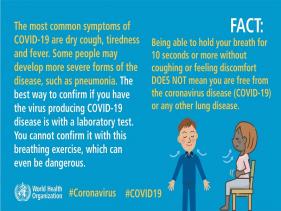27 March 2020
Covid 19 coronavirus: Campervans set up in Auckland, Christchurch for Kiwi travellers to self-isolate
Hundreds of campervans have been set up by the Government in Auckland and Christchurch for those returning from overseas with nowhere to self-isolate.
25 March 2020
COVID-19: Rent increase freeze and more protection for tenants
- Immediate freeze on rent increases
- Tenancies will not be terminated during the lock-down period, unless the parties agree, or in limited circumstances
- Tenants who had previously given notice can stay in their if they need to stay in the tenancy during the lock-down period
- Tenants will still be able to terminate their tenancy as normal, if they wish
25 March 2020
Canada, Australia, Chile, Brunei and Myanmar join NZ and Singapore in committing to keeping to keep supply chains open and remove any existing trade restrictive measures on essential goods, especially medical supplies, in the face of the Covid-19 crisis.
25 March 2020
Protect businesses and workers
measures include:
- Facilitating a 6-month deferred mortgage payment scheme to support mortgage holders whose incomes are affected by COVID-19, so that Kiwis don’t lose their homes during this period
- An estimated $9.3 billion in wage subsidies for affected businesses in all sectors and regions,
- Support for renters through a freeze on rent increases and end to no-cause evictions on top of existing support like the Accommodation Supplement and MSD grants to help with rent and hardship payments
- Protecting the ability of our public health services to respond to this global pandemic and access the resources they need through an initial $500 million investment.
- Doubling the 2020 Winter Energy Payment for Superannuitants and main-benefit recipients from 1 May to 1 October to make sure our most vulnerable are able to heat their homes particularly during a time when over-70s are to remain at home.
- A $25 per week increase to main benefits to protect our most vulnerable and those who lose their jobs, on top of the $10 a week wage indexation increase from 1 April.
- The $6.25 billion Business Finance Guarantee Scheme to provide loans of up to $500,000 for businesses with annual revenues between $250,000 and $80 million, for up to three years – 80% guaranteed by the Government.
- Business tax changes to free up cashflow, including a provisional tax threshold lift, the reinstatement of building depreciation and writing off interest on the late payment of tax
Use of face coverings on public transport outlined
Health Minister Chris Hipkins says wearing a face covering on public transport is the right thing do and will help keep New Zealanders safe from COVID-19.
From Monday it will be compulsory for everyone aged 12 and over to wear a face covering on public transport and planes under Alert Level 2 and above, with certain exemptions for health, disability and practicality reasons.
“New Zealand has had real success in taking collective action to contain and stamp out COVID-19 because we’ve worked as a team,” Chris Hipkins said.
“I know this is big change and will take some getting used to but it is a small thing we can all do that helps us get back to the freedoms of Level 1.
“The advice from health officials is clear – the use of face coverings can reduce the risk of people spreading COVID-19, particularly where it is hard to maintain physical distance from others. Masks and face coverings do not replace physical distancing – they complement other public health measures.
“We want to make this as easy as possible, so any form of face covering will do. If you don’t have a mask you can use a scarf or bandana.
“We encourage everyone to get three or four washable masks each and are also investigating the potential distribution of reusable masks to those most in need.
“We know that some people won’t be able to wear masks for personal and medical reasons. Please be supportive of people as they get to grips with this new policy.
“Today I can also confirm that we will release a further three million masks for national distribution over the coming days as a one-off boost to immediate supply. This will be distributed among iwi, social services groups and community foodbanks in centres and regions where there is public transport.
“It will take time for people to adapt. Not everyone will have a face covering ready for the Monday morning commute but pretty quickly we will see face coverings become commonplace on public transport,” Chris Hipkins said.
NOTE: The order today sets out that at Level 2 and above:
- Face coverings should be worn on public transport and aircraft. That includes trains, buses, and ferries.
- They don’t need to be worn on:
- By children under 12
- On school buses
- On charter or group tours
- On interisland ferries
- On private flights
- By private contractors of air services such as top-dressers
- These groups are already likely within each other’s bubbles as part of a registered group or have space to physically distance.
- In addition, face coverings do not need to be worn by:
- Passengers of small passenger vehicles, such as taxis and uber. But drivers will be required to wear masks.
- People with a disability or physical or mental health condition that makes covering their face unsuitable do not have to wear face coverings also.
- There will be other times when it is not required – such as in an emergency, if unsafe, if people need to prove their identity or to communicate with someone who is deaf, or if required by law.
Not wearing a face covering on public transport will become an offence, punishable by a $300 infringement notice or a fine of up to a $1000 imposed by the courts. Enforcement of the rules will be light touch - starting with engagement, encouragement and education.
Further details available at www.covid19.govt.nz












